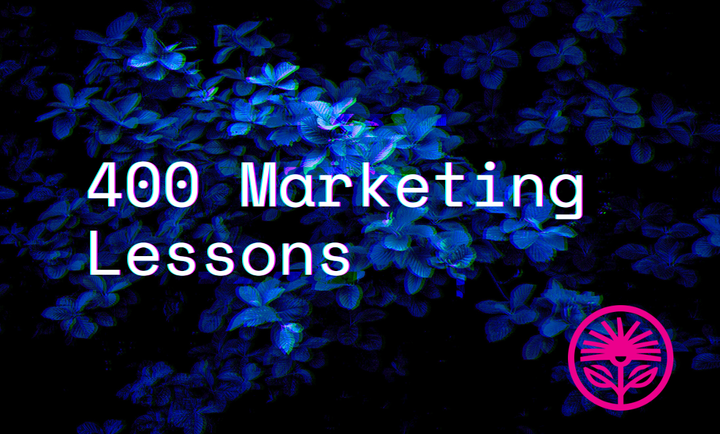Highlights: Demonstrating value daily
Our favorite Daily Labs from the past month.

Usually we wrap up a content series with a video, but this time we’re trying something a little different. Instead, this will be a simpler newsletter, rounding up some of our favorite Daily Labs from the past month.
I hope you enjoy this lighter issue this week, and I’ll be back next week with a brand new model to help you keep demonstrating your value at a distance.
How to write quickly
There’s a famous quote often (and likely wrongly) attributed to Abraham Lincoln:
“Give me six hours to chop down a tree and I will spend the first four sharpening the axe.”
Now, I don’t know anything about chopping down trees, but I do know a lot about writing quickly. And everything you need to know is contained within that quote.
Because the secret to writing quickly is doing the writing part last. And spending most of your time sharpening the axe and preparing for the work.
So, the next time you need to write something quickly, spend most of your time answering these questions:
What is this writing trying to do?
Who needs to see it for that to happen?
What do I want them to do once they’ve seen it?
How do I make that easiest for them?
Why should they care to do it?
By the time you’ve written all that, you’ve written everything you need to say.
Now, start chopping.
“We must feel our way.”
That’s what copywriting legend Claude C. Hopkins said about marketing almost 100 years ago in My Life in Advertising.
He wrote, “None of us can afford to rely on judgement or experience. We must feel our way. New problems require new experience. We must test our undertakings in the most exact way possible. Learn our mistakes and correct them. Watch every appealing lead.”
That’s because marketing is contextual. And context changes, every single day.
We change it, in every single action we take.
So that means we can never truly predict what will work. We can only prepare.
Because, as I always say, marketing never fails. It just stops.
But we can prepare to keep going by giving ourselves ample resources. Like time, patience, and enthusiasm—remembering that nothing ever goes as planned.
So give yourself permission—and preparation—to take your time.
And feel your way.
“Let’s quit something”
Are you experiencing “escalation of commitment”?
It’s the feeling that, even though things aren’t looking good, you should double down. You should keep pushing through.
Basically, to protect our identity as someone who makes good decisions and sticks to things, we tend to stick to bad decisions long after we should have quit them.
But what if we shook off the sunk costs and opened our eyes to whether what we’re sticking to is actually worth seeing through?
Or if it’s better off quit.
“That means realizing,” as Annie Duke writes in Quit, “that spending another minute or another dollar or another bit of effort on something that is no longer worthwhile is the real waste.”
But nobody wants to be a quitter, right?
“Contrary to popular belief,” Duke writes, “winners quit a lot. That’s how they win.”
So, this week, instead of doing more marketing work—instead of anxiously puttering away at the endless tasks—choose something to stop doing.
Not so you can simply do less, but so you can do more of what’s worth it.
Because nobody has ever “found time” to do the important things.
Winners make time by quitting the things that waste it.
So I promise I’ll quit an unnecessary project or task this weekend if you will, too.
Get marketing out of the way today
You probably have more important things to do today than marketing. It might feel that way, at least, and it may feel that way most days.
But you might also worry that if you don’t do marketing, future work could dry up.
So how do you do marketing work when you’re busy with the “real” work?
By recognizing it’s all one thing.
If you’ve got something more important than marketing to do, do it. But while you’re at it, capture how your way of doing it demonstrates your value.
Take a video, write a quick note about your process, or ask a colleague to document the steps involved.
And then ask what types of marketing you could do—like writing a blog, creating videos, interacting on social media, starting a podcast, or anything else—that would help make you better at what you really do.
How could it help you refine your process or improve your skills?
You’ll find it’s a lot easier to do marketing when it’s helping, and when it’s a natural part of what you’re already doing.
That way, you never have to make time for it, because you’re always doing it.
So get your marketing out of the way today, by making it the only way.
If you’d like to sign up for the Daily Lab, you can add it to your existing subscription at Kelford Labs.


